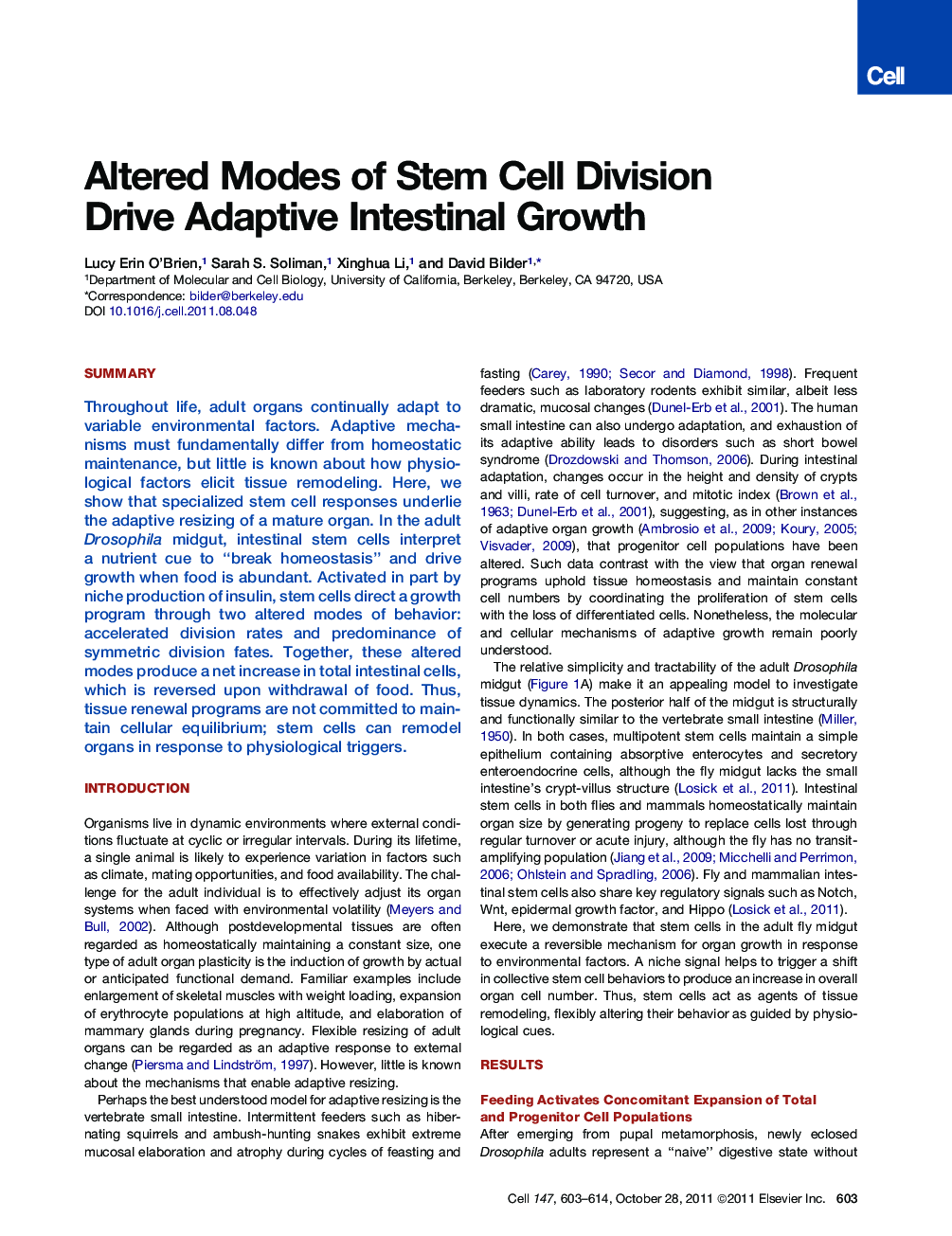| Article ID | Journal | Published Year | Pages | File Type |
|---|---|---|---|---|
| 2036157 | Cell | 2011 | 12 Pages |
SummaryThroughout life, adult organs continually adapt to variable environmental factors. Adaptive mechanisms must fundamentally differ from homeostatic maintenance, but little is known about how physiological factors elicit tissue remodeling. Here, we show that specialized stem cell responses underlie the adaptive resizing of a mature organ. In the adult Drosophila midgut, intestinal stem cells interpret a nutrient cue to “break homeostasis” and drive growth when food is abundant. Activated in part by niche production of insulin, stem cells direct a growth program through two altered modes of behavior: accelerated division rates and predominance of symmetric division fates. Together, these altered modes produce a net increase in total intestinal cells, which is reversed upon withdrawal of food. Thus, tissue renewal programs are not committed to maintain cellular equilibrium; stem cells can remodel organs in response to physiological triggers.
Graphical AbstractFigure optionsDownload full-size imageDownload high-quality image (283 K)Download as PowerPoint slideHighlights► Onset of feeding triggers a stem cell response to increase total intestinal cells ► Niche production of insulin activates stem cell divisions beyond maintenance levels ► Symmetric stem cell divisions predominate specifically during the growth response ► Intestinal growth is reversible and repeatable with dietary change
